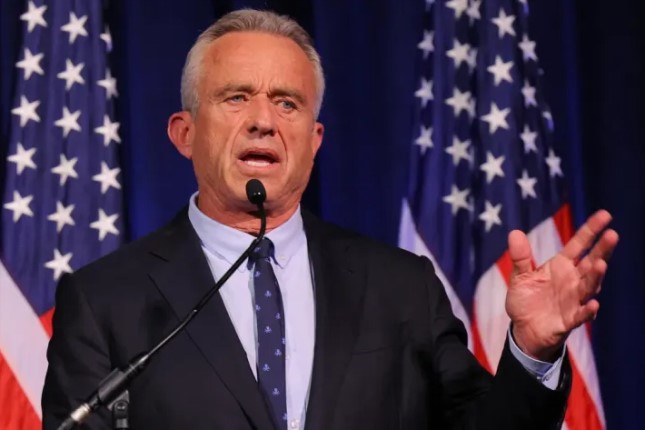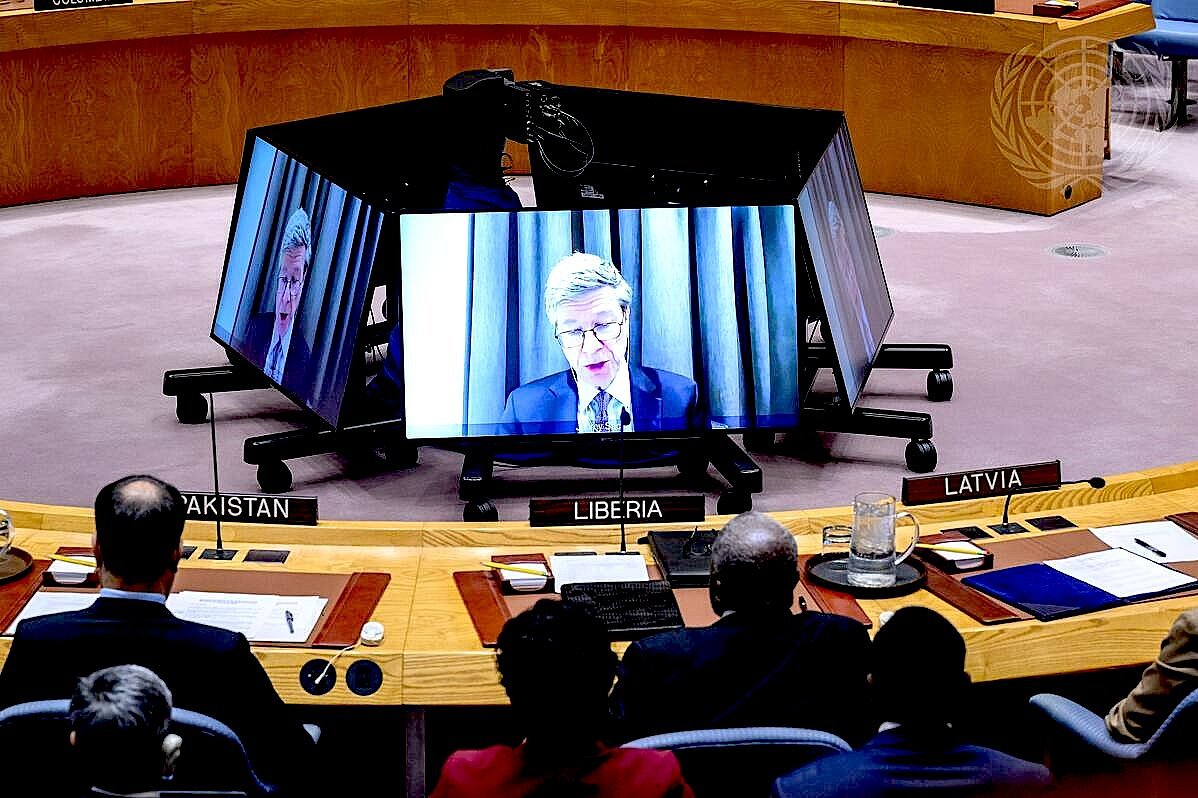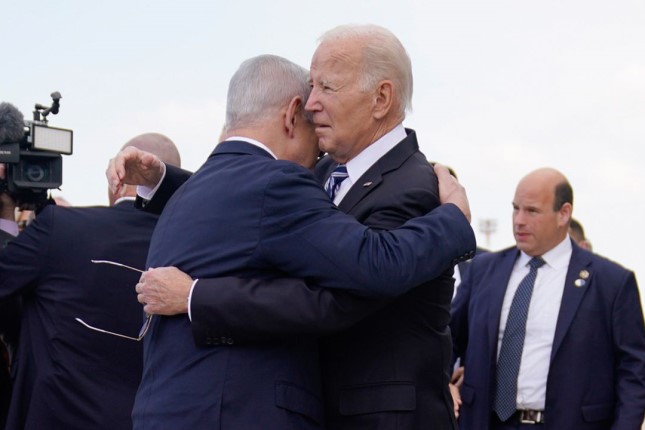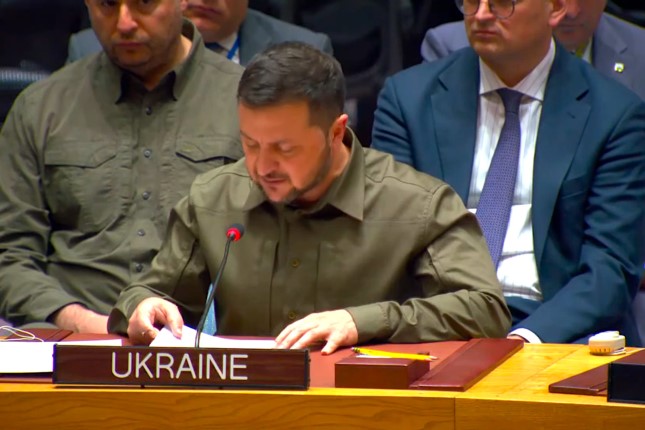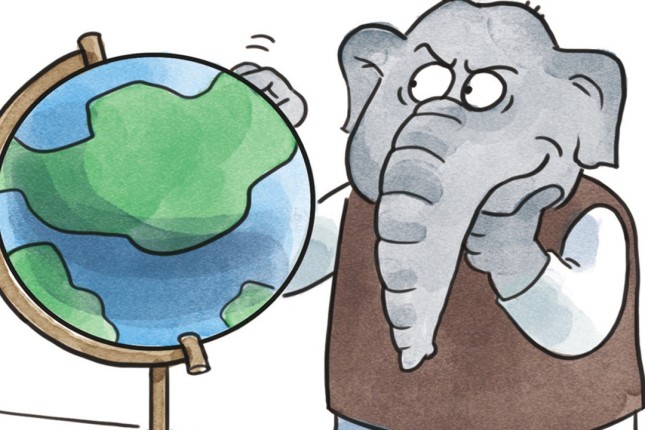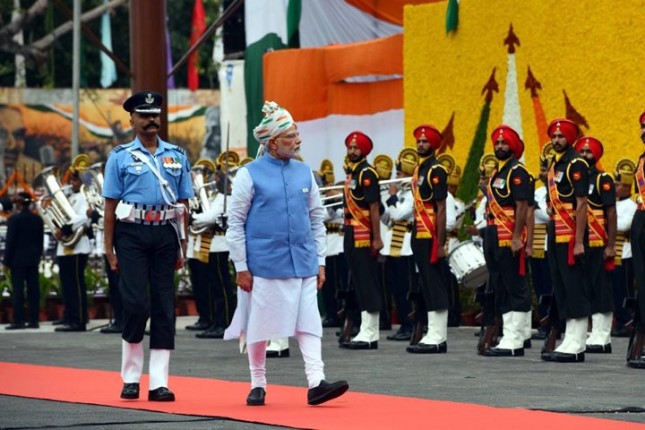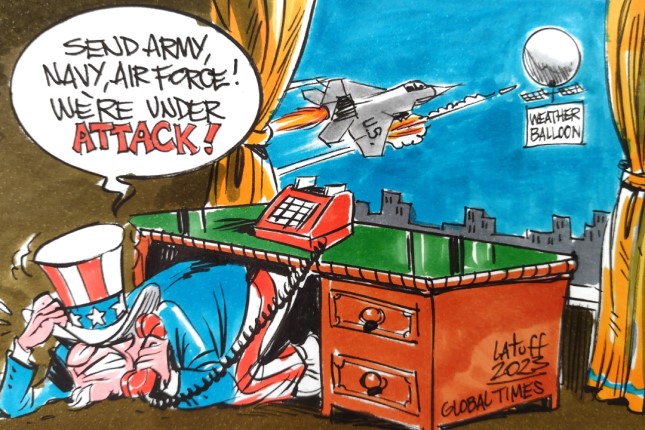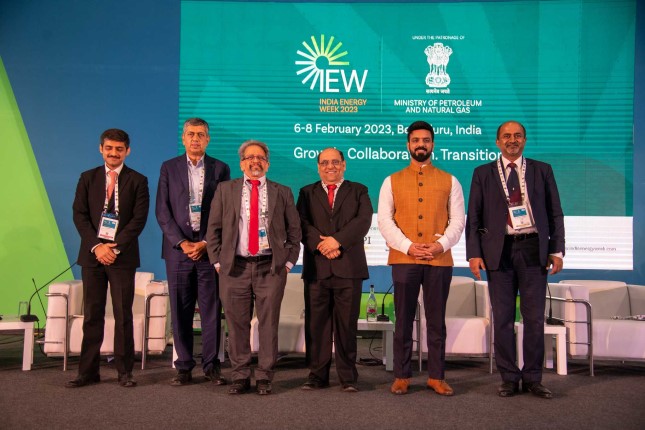Bobby is a registered Democrat, and when, this past May, he threw his hat into the ring regarding the 2024 Presidential election, I had to suppress my enthusiasm, knowing full well that the Democratic Party elite who stole the nomination from Bernie Sanders in 2016, and cooked the books for Biden in 2020, would never give the nephew of John Fitzgerald Kennedy a fighting chance to win the nomination for the Democratic Party in the 2024 election. Frankly speaking, how I felt about Bobby didn’t matter, because as a registered Republican in the State of New York, I was irrelevant when it came to issues pertaining to the Democratic primary.
This, of course, didn’t mean I had gone deaf, dumb, and blind to the Kennedy phenomenon. Back in February, I had spent some quality time in a Washington, DC bar with Dennis Kucinich, the man who would go on to be appointed as Bobby’s campaign manager when the Kennedy scion announced his bid for America’s top job back in May. Dennis was excited about the prospects of a Kennedy run, and that night we outlined what we believed to be the list of positives that accrued to a Bobby candidacy. The list was long and, although fueled by beer and pretzels, rational. Bobby was the anti-candidate, the perfect antidote to the ignorant arrogance of Donald Trump and the incompetent ignorance of the incumbent, Joe Biden. If Bobby could find the sweet spot between the two candidates, Dennis and I strategized, then he had a very good shot at taking home the grand prize—the presidency of the United States.
I struggled with Bobby’s candidacy early on over his stance on the Russia-Ukraine conflict, and Russia in general. His position seemed to be influenced by the experiences of his son, Conor, a law student at Georgetown University who skipped out on an internship at a prestigious law firm to instead spend the summer of 2022 volunteering to fight with the Ukrainian Army against Russia. Conor, who had no prior military experience, was initially trained as a drone operator and, later, as a machine gunner in a unit that included other American soldiers of fortune. After two and a half months in Ukraine, Conor returned to the United States, where he is currently finishing up his law degree at Georgetown.
Bobby said that he “knew [Conor’s] views about the war were not aligned with mine.” Noting that Conor wasn’t naïve about Ukraine (“Ukraine has problems…there’s corruption”), Bobby said of his son, “He doesn’t like Putin. He thinks he’s a gangster and a bully and he doesn’t like bullies.”

Conor Kennedy in the uniform of the Ukrainian Army, Summer 2022.
Forget that we are talking about a Georgetown law student whose mind should be developed sufficiently to advance an argument as simplistic as “Putin is a bully.” Forget for a moment that a scion of the Kennedy family—an American institution—chose to bear arms not for America, but a foreign country. Forget for a moment that this same scion fought for a country whose national hero—Stepan Bandera—led an organization of Ukrainian nationalists responsible for the murder of hundreds of thousands of civilians during the Second World War while allied with Nazi Germany.
History is full of examples of prodigal sons returning to the arms of a forgiving father, and they should both count their blessings that Conor wasn’t killed, wounded, or captured by the Russians during his summer experimentation with conflict tourism.
Some of Conor’s childish sentiment seemed to rub off on Bobby when he spoke on the issue of the Russia-Ukraine conflict, but by and large Bobby took the right stance, solidly connecting with the facts and drawing the right conclusions.
Scott Ritter discussed this article in Ep. 109 of Ask the Inspector.
The evidence of this is in the words spoken by Bobby in what has been, up until this moment, his defining public address to the American people—the Peace and Diplomacy speech delivered at Saint Anselm College in Goffstown, New Hampshire, on June 21, 2023—sixty years after his uncle’s famous American University address that helped chart a new course of US-Soviet relations.
Bobby started his speech poorly (“I abhor Russia’s brutal and bloody invasion of that nation [Ukraine],” he said, perhaps channeling Conor), but he quickly recovered. “But we must understand that our government has also contributed to its circumstances through repeated deliberate provocations of Russia going back to the 1990s. Democratic and Republican administrations have pushed NATO to Russia’s borders, violating our own solemn promise from the early ’90s when we pledged that if Russia made this terrible concession of moving 400,000 troops out of East Germany and allowing the unification of Germany under a NATO army, a hostile army, that we would commit that after that we would not move NATO ‘one inch to the east.’” James Baker gave that assurance, as did the British government officials and many, many others. And yet today, we have surrounded Russia. We have moved NATO not just one inch to the east, but a thousand miles and fourteen nations. We have surrounded Russia with missiles and military bases, something that we would never tolerate if the Russians did that to us. And statements from our government officials and think tanks lay out the goals for the Ukraine war: regime change in Russia; the overthrow of Vladimir Putin. This is what President Biden has said is our purpose in the Ukraine: the disabling and exhaustion of the Russian military, and the dismembering of the Russian Federation. None of these objectives have anything to do with helping Ukraine, which of course, was the pretext for our involvement in the war. That’s when our leaders told us that we were there for a humanitarian mission. But they’ve since acknowledged that there is a broader geopolitical agenda, and that Ukraine is simply a pawn in a proxy war between the United States and Russia.
Bobby’s words shook the establishment. Some regional media outlets, like Boston Man Magazine, recognized it for what it was (“I heard the voices of JFK and RFK in that of Robert Fitzgerald Kennedy, Jr, nephew and son of the aforementioned,” its publisher noted in an introduction to the text of the speech published in the magazine. “In his Peace and Diplomacy speech that evening, I heard hope for a Pax Americana”), the mainstream media either ignored the speech altogether, or wrote it off by labeling Bobby a tool of Russian propaganda.
The fact that both the Democrats and Republican establishments were up in arms over Bobby’s common-sense approach to defining the Russia-Ukraine conflict meant that Bobby was separating himself from both parties—an absolute requirement if he was going to be able to garner enough votes in a general election to walk away the winner. Moreover, operating from the logic that one cannot solve a problem unless it is first properly defined (because whatever solution you come up with will not address the true nature of the problem, and as such solve nothing), Bobby was positioning himself to be the only candidate with a track record of getting it right on the issue of Ukraine and, as such, being in a position to conceive and implement policies that had a chance of helping craft a long-term solution to the overall issue of European security.
Bobby said of his uncle’s American University speech, “It’s one of the most important speeches in American history.” What made it so, Bobby believed, was that his uncle “talked to the American people and asked them to put themselves in the shoes of the Russians. Everybody else was doing the opposite at that time. They were demonizing and vilifying the Russians. And he said, no, we have to put ourselves in their shoes, in the shoes of our adversaries. If we want to have peace, we need to do that. It has to be a regular discipline.”
These words were music to my ears. I had just returned from a 26-day, 12-city tour of Russia promoting my book, Disarmament in the Time of Perestroika, which had been published in the Russian language by Komsomolskaya Pravda, one of the oldest and most respected publishing houses in Russia. The visit was far more than simply a book marketing ploy. It was a personal journey of discovery where I sought not only to put myself in the shoes of the Russian people, but peer inside their collective soul in an effort to better understand their perspective on life. JFK’s American University speech was a motivating factor in my journey, as it set in motion events pertaining to arms control that ended up being manifested in the 1987 Intermediate Nuclear Forces Treaty, which I helped implement as a weapons inspector (and the experiences of which formed the basis of my book).
Bobby channeled his uncle in the words of his Peace and Diplomacy speech, saying of the Russians that “they have legitimate security concerns the same as we do, and we need to understand that. He [JFK] reminded Americans of the suffering that the Russians had endured during the war – unimaginable suffering.” One in seven Russians had been killed during World War Two. He asked Americans to imagine that all of the land, all of the cities, all of the towns from the East Coast to Chicago had been leveled to rubble, that the forests and fields had been burned. And he said that’s what happened to Russia during the war. That’s what they sacrificed for us. And they have legitimate security concerns to make sure that never happens again. And that speech turned around the American people and they ended up supporting the treaty. It was one of the fastest ratified treaties in American history.
After that speech, there was never a doubt—I was on Team Bobby.
I found Bobby’s candor and intellectual inquisitiveness in challenging the COVID mandates, inclusive of vaccines, refreshing. I appreciated his environmentalism. But most of all, as someone who believed that the threat of a nuclear war with Russia represents the single greatest threat to the security of the United States and the rest of the world, I saw in Bobby a glimmer of hope that the madness of nuclear war, and the Russophobia that existed in the United States that made such madness possible, could be defeated.
There were some things about Bobby which made me uncomfortable, nothing more so than his position on Israel and the Palestinian question.
I had taken the time to read up on Bobby before I did an interview with him on April 9 on “the cost of war.” I found one article he authored for Politico back in 2016, “Why the Arabs Don’t Want Us in Syria,” particularly illuminating.
“It’s time for Americans to turn America away from this new imperialism and back to the path of idealism and democracy,” Bobby wrote, addressing America’s oil-driven presence in the Middle East. “We should let the Arabs govern Arabia and turn our energies to the great endeavor of nation building at home. We need to begin this process, not by invading Syria, but by ending the ruinous addiction to oil that has warped US foreign policy for half a century.”
These words were again music to my ears. There was, however, one note that sounded off-key. Tucked away near the end of Bobby’s lengthy piece was a single reference to Israel. I was struck by the fact that Israel wasn’t factoring more in his narrative. “[W]e need,” Bobby wrote, “to dramatically reduce our military profile in the Middle East and let the Arabs run Arabia. Other than humanitarian assistance and guaranteeing the security of Israel’s borders, the US has no legitimate role in this conflict.”
The security of Israel’s borders was a touchy subject, given the fact that Israel was in the process of expanding its borders by stealing Palestinian land through illegal settlements, occupying Lebanese territory (the Shebaa Farms), and illegally annexing the Golan Heights, I had to wonder which Israeli border Bobby was so keen upon securing with American lives.
The issue of Israel and Bobby’s allegiance to the same raised its head shortly after the son of RFK announced he was throwing his hat into the presidential ring. When Roger Waters, a founding member of Pink Floyd, came under fire in Germany for his live performance of “The Wall” in early May (Roger wore clothing that invoked Nazi Germany, a consistent feature of his act when performing this particular song from the eponymous album, which is highly critical of fascism and, by extension, an artistic expression against Nazi Germany), Bobby stepped up in his defense. “Roger,” Bobby tweeted, “You are the global hero Orwell had in mind when he said, ‘In a time of universal deceit, telling the truth is a revolutionary act.’ The high priests of the totalitarian orthodoxies are trying to silence you with censorship, gaslighting and defamation. Please keep speaking truth to power!”
Almost immediately, Kennedy came under vociferous attack from Jewish organizations. Roger Waters, they maintained, was antisemitic. The charge was not a new one. In June 2020, the Anti-Defamation League (ADL) criticized Waters for being “one of the most prominent and outspoken supporters of the BDS movement.” The Boycott, Divestment, Sanctions (BDS) movement is a pro-Palestinian organization which works to end international support for Israel’s oppression of Palestinians and pressure Israel to comply with international law by targeting the Israeli economy and businesses which do business with Israel. According to the ADL, Rogers “has refused to perform in Israel and urged fellow artists to follow suit and has often used inflammatory rhetoric against the country.”
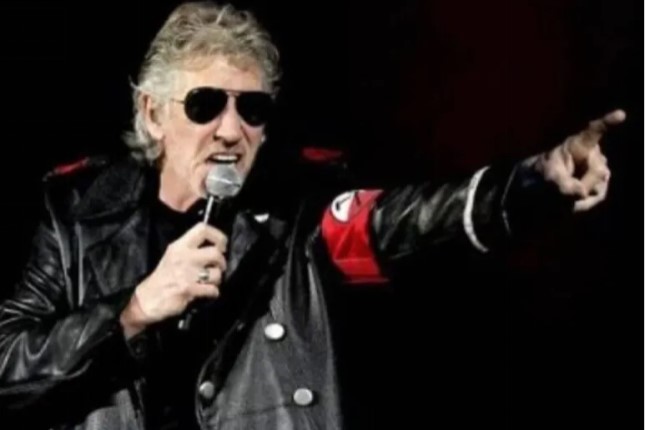
Roger Waters performs in Berlin, May 2023.
Then, the ADL suggested that Rogers’ “anti-Israel views may be colored by antisemitism,” noting that the former Pink Floyd frontman viewed Zionism (described by the ADL as Jews who seek to “incorporate a connection with Israel into their religious, cultural, or social identities”) as “an ugly stain” which “needs to be gently removed.”
The ADL failed to make any mention of the philosophy espoused by the “father of modern political Zionism,” Theodore Herzl, who helped create the notion of a “Greater Israel” which has been used for decades by Jewish settlers, operating with the open support of the Israeli government, to steal Palestinian homes and land. In this way, the ADL—and other Jewish groups—have positioned themselves to label anyone who criticizes Zionism—like Roger Waters—as being engaged in “an implicit attack on millions of Jews who incorporate a connection with Israel into their religious, cultural, or social identities” and, as such, antisemitic.
Roger’s German performance came under attack by the European Jewish Conference, which tweeted out two images from the concert—one of him in his “costume,” and the other of the name “Anne Frank” projected onto a screen on stage. “Is there anything more antisemitic,” the EJC posted on X, “than using Anne Frank as a prop on a German stage while prancing around in a Nazi uniform attacking Jews?”
The Baronesse Katharina von Schnurbein, a German career politician who currently serves as the European Commission’s “coordinator on combating antisemitism and fostering Jewish life” (she herself is not Jewish), jumped on the anti-Roger Waters bandwagon, posting on X, “I am sick & disgusted by Roger Waters’ obsession to belittle and trivialize the Shoah & the sarcastic way in which he delights in trampling on the victims, systematically murdered by the Nazis. In Germany. Enough is enough. Holocaust trivialization is criminalized across the EU.”
Enter the United States. “I wholeheartedly concur with [Schnurbein’s] condemnation of Roger Waters,” the US Special Envoy for Monitoring and Combating Antisemitism, Deborah Lipstadt, posted on X, “and his despicable Holocaust distortion.”
According to the Forward, an independent Jewish magazine, “Concertgoers who saw Waters perform in Berlin in May tweeted photos of Abu Akleh [Palestinian journalist Shireen Abu Akleh, killed by Israeli troops while doing her job] and Frank’s names being projected onto large screens. Under Abu Akleh’s name, the location of her death was listed as ‘Jenin, Palestine,’ her crime as ‘Being Palestinian’ and sentence as ‘death.’ Under Frank’s name, the location of her death was listed as the Bergen-Belsen concentration camp while her crime was listed as ‘Being Jewish’ and the sentence also death. Rogers, “the Forward article noted, “has defended the concert act, saying on social media that it is ‘quite clearly a statement in opposition to fascism, injustice, and bigotry in all its forms.’”
Indeed, when the Anne Frank Trust posted criticism of Waters on X, it was hit with a community context note which pointed out how wrong the trust and other critics of Roger Waters were in attacking his performance. “[C]learly Roger Waters needs educating about prejudice & antisemitism,” the Anne Frank Trust posted. “It is wildly inappropriate to misuse Anne Frank’s legacy.”
The community context note had a different take. “Frank's name is shown as one of several victims of police or government forces as a statement against monetarianism and oppression,” the post noted, “themes addressed on Radio KAOS, the album from which the song is drawn. Frank is named as being killed for ‘the crime’ of being Jewish.”
No antisemitism here.
Anyone with a head on their shoulders saw through the nonsense of those defenders of Israel who took umbrage at Roger Waters exposing their hypocrisy. No one was buying what the pro-Zionist “establishment” was selling. No one, that is, except Bobby Kennedy.
“In my remarks about Roger Waters,” Bobby posted on X as soon as the Roger Waters controversy took root, “I was referring to his dissent on COVID and the war in Ukraine. I have only recently learned about some of his other views, which I do not share.” Kennedy then added, “I support Israel’s right to exist within secure borders and I also support the legitimate aspirations of the Palestinian people.”
What Bobby was admitting to was being as ignorant as the shallow politicians he was trying to differentiate himself from, people who, when armed with superficial knowledge about a topic, embrace an issue they had nothing to do with on the assumption that it might enhance their profile purpose, only to turn on a dime when confronted with controversy they did not understand, and lacked the courage of their convictions to defend against.
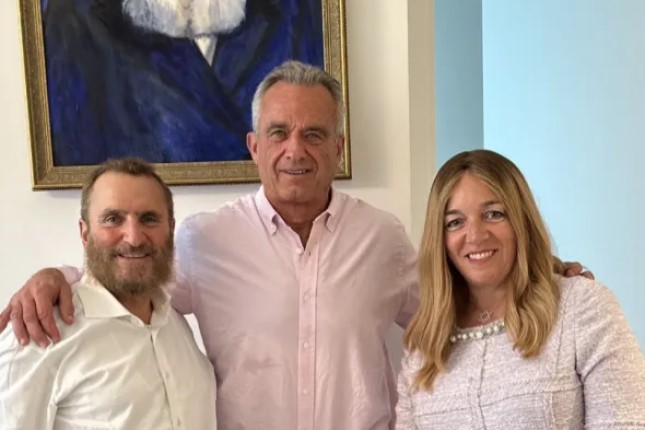
Bobby Kennedy with Shmuley Boteach and his wife, June 2023.
Bobby then doubled down on his new-found stance as “staunch friend of Israel,” meeting for more than two hours with Rabbi Shmuley Boteach to discuss, according to a posting on X put out by Boteach, “Israel, the rise of antisemitism, and Kennedy’s recent tweet where he supported Roger Waters.” Boteach, a staunch defender of Israel and Zionism, went on to state, “It was courageous of Bobby to come and meet me and reassert his lifelong support of Israel and the Jewish people, continuing in the legacy of his great father who was murdered by Palestinian gunman Sirhan Sirhan because of his own support of Israel in 1968.”
What is curious about this passage is Boteach’s mentioning of Sirhan Sirhan, the man convicted of murdering Robert F. Kennedy in 1968. Bobby is on record saying that he doesn’t believe that Sirhan Sirhan was the gunman who killed his father. That title, according to Bobby, belongs to Eugene Thane Cesar, a man Bobby describes as a CIA operative and enemy of the Kennedy family. “He [Cesar] was holding my father’s arm,” Bobby told comedian Bill Maher in a recent interview. “He drew his gun, and my father was shot four times from behind.”
One would have to imagine this detail of his family’s history means something to Bobby—it is how his father died. Bobby has committed to a narrative which deviates from the public record—a bold move, especially if one believes in the accuracy of their position. And yet, because of Bobby’s need to be seen as supporting Israel, he allowed Rabbi Boteach to reimagine this murder to smear Palestinians with the murder of RFK and linking this murder to Israel. That Bobby allowed this to occur without correcting the record is, to be blunt, stunning.

Bobby marches alongside Shmuley Boteach in New York City, June 4, 2023.
Bobby was also silent as Boteach turned his sights on Roger Waters, transforming Bobby’s “global hero” into something much different. Bobby, Boteach observed, “explained that his tweet about Waters was in response to someone sharing with him a picture that Waters flashed of Kennedy at one of his concerts, saluting the candidate’s willingness to swim against societal currents. Bobby told me he had no idea that Waters was a vicious antisemite and when he studied the issue and the facts, he immediately deleted the tweet. I believe Bobby and I thank him for his repudiation of Waters. How tragic it is for Waters to have his legacy as an antisemite now overtake his legacy as an accomplished artist.”
If Bobby said these things, then he has lost all credibility as a man who is deserving to hold the office of the President of the United States. Roger Waters is not a “vicious antisemite,” and for Bobby to attack him as such (assuming Boteach has accurately recorded his words) is both intellectual and moral cowardice. Things don’t get better for Bobby if Boteach manufactured this aspect of their conversation, since Bobby allowed Boteach’s words to go unchallenged.
As part of the Rabbi Boteach “cleansing” ritual, Bobby had to agree to march with the Jewish leader in New York City’s “Celebrate Israel Parade” on June 4.
Somehow, Bobby couldn’t shake the Israeli/antisemitic controversy. On July 11, 2023, at a private fundraiser held at Tony’s Di Napoli restaurant on East 63d Street, Bobby once again stirred up a hornet’s nest of Jewish angst. “COVID-19,” he told the crowd. “There is an argument that it is ethnically targeted. COVID-19 attacks certain races disproportionately,” Kennedy said. “COVID-19 is targeted to attack Caucasians and black people. The people who are most immune are Ashkenazi Jews and Chinese. We don’t know whether it was deliberately targeted or not but there are papers out there that show the racial or ethnic differential and impact.”
The New York Post published Bobby’s words (Bobby claims that his presentation was off the record, an assertion at least two attendees dispute), and the Jewish community blew up in anger, forcing him—once again—to turn to X to post a clarification. “The US and other governments are developing ethnically targeted bioweapons and that a 2021 study of the COVID-19 virus shows that COVID-19 appears to disproportionately affect certain races,” Kennedy wrote. “The furin cleave docking site is most compatible with blacks and Caucasians and least compatible with ethnic Chinese, Finns, and Ashkenazi Jews. In that sense, it serves as a kind of proof of concept for ethnically targeted bioweapons. I do not believe and never implied that the ethnic effect was deliberately engineered.”
The controversy followed Bobby to the US Congress, where he was scheduled to give high-profile testimony on government censorship, but instead spent most of his time defending his comments on COVID and Jews. Representative Debbie Wasserman Schultz, a Democrat from Florida, brought up an earlier Kennedy faux pas that occurred at an anti-COVID vaccine rally in Washington, DC, in January 2022, where he decried the COVID mandates set forth by the US government. “Even in Hitler’s Germany,” Kennedy said, “you could cross the Alps into Switzerland. You could hide in an attic like Anne Frank did.”
Even though Kennedy apologized (via a tweet) for his remarks (“I apologize for my reference to Anne Frank, especially to families that suffered the Holocaust horrors. My intention was to use examples of past barbarism to show the perils from new technologies of control. To the extent my remarks caused hurt, I am truly and deeply sorry”), Wasserman Schultz confronted Bobby, stating, “You made light of the genocide against Jewish people.” Kennedy was forced to apologize yet again.
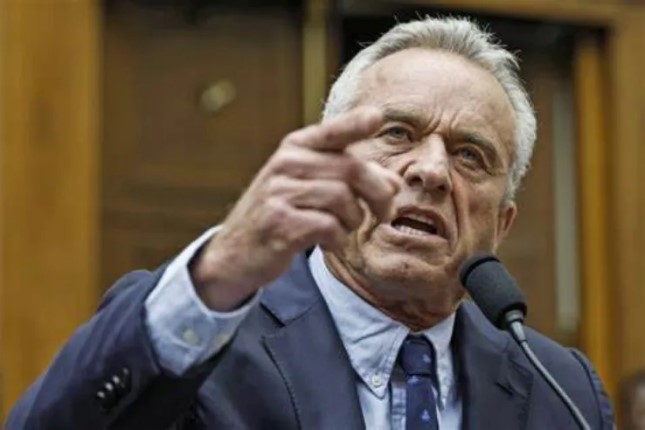
Bobby testifies before Congress, July 2023.
Kennedy had to again turn to Rabbi Boteach to be cleansed of the charge of antisemitism stemming from his July 11 comments. Boteach conducted a 35-minute interview with Kennedy. Afterwards, the popular rabbi declared,“Bobby Kennedy and I are friends, and I like him. Kennedy,” Boteach said, “is the only major Democrat who has come out against that Iran deal. Bobby Kennedy is one of the only Democrats who spoke out boldly to protect Israel with its recent Jenin assault on terrorists. He defended Israel.”
There was another act of contrition Kennedy had to subject himself to before he could shed the antisemitism charge—and interview with the strongly pro-Israel Jewish News Syndicate (JNS). Here, Bobby—for the first time in such detail—set forth the depth of his support for Israel, especially its importance “as the only Middle East democracy” and “the significance of its military alliance with the United States.”
Bobby declared that he was aware of no other country that has Israel’s military discipline—what he called its “unique moral approach” to warfare. According to the JNS interview, Bobby noted that “Israel tries to treat Palestinians morally with justice and has sought a two-state solution despite the ‘abject refusal of the Palestinian leadership to negotiate and the genocidal aspirations of the Palestinian Authority.’ Israel, Bobby said, only attacks military targets, “enduring casualties of IDF forces in a deliberate, purposeful effort to protect civilians. I don’t think any other country in the world does it as well and with such a commitment as Israel.”
Bobby stated that he stood alone among Democrats when it came to defending Israel’s actions. “I am going to not only defend that record,” Bobby declared, “but I’m going to champion the moral argument for Israel and use my campaign as a bully pulpit to do that.”
Bobby was as good as his word. On August 1, during an interview with political comedian Jimmy Dore, Kennedy defended Israel’s military conduct against the Palestinians, criticizing the Grayzone’s Max Blumenthal in the process. “I love Max Blumenthal,” Bobby told Jimmy, “But I do not think he’s objective on Israel. His reporting on Israel—it needs to be questioned.” When Dore challenged Bobby to do an interview with Max, Bobby agreed, only to have his staff reverse course, saying such an interview would not happen.
Bobby’s position was a disaster. I can personally attest to several high-profile political personalities who were ready to throw in with Bobby, only to have his position on Israel cause them to take stock of where they stood. Like me, they were attracted by Bobby’s anti-war stance, and his embrace of diplomacy as the ideal tool to resolve US-Russian relations. But Bobby’s unquestioning embrace of Israel’s militarism put him in a new light, something that did not bode well for the “anti-war” candidate, especially when looking at his hardline positions vis-à-vis Iran and China.
Bobby was losing votes at a time when he could ill afford to do so.
I stood by Bobby during this hard time, convinced that the wisdom and insight he exhibited in his Peace and Diplomacy speech was the real Bobby, and that warmonger Bobby could be managed once he secured the nomination. But he was still a Democrat, and as such I feared he would never survive in a system where the people had been supplanted by “super delegates” who would throw the election to the incumbent, Joe Biden, regardless of how the people voted. I had trouble vesting myself too much in someone I didn’t think was going to clear the starting gate.
Fortunately, Bobby and his team had reached a similar conclusion, accusing the Democratic National Committee of strategically shifting the Iowa primary and implementing rules that penalized candidates who campaigned in certain states. Moreover, Bobby believed, the DNC’s control over super delegates and automatic delegates made it virtually impossible for any candidate other than Biden to secure the nomination. Bobby would need to win almost 80% of all states to outmaneuver Biden, assuming Biden only wins 20% of the vote.
“It’s pretty clear that the DNC does not want a primary,” Bobby said. “They’re effectively disenfranchising the Democratic voters from having any choice in who becomes president or who becomes the Democratic nominee.”
Bobby then made the only choice possible if he was going to be a viable candidate for President in 2024—he declared himself as an independent.
This should have been a huge event, the very act that would separate him from both Democrats and Republicans, thereby liberating him to become a third center of gravity which, through the strength of Bobby’s personality and integrity, could start to steal voters from the orbits of the two major parties. The announcement was scheduled for October 9, in Philadelphia.
On October 7, Hamas launched its attack on Israel.
“This ignominious, unprovoked, and barbaric attack on Israel must be met with world condemnation and unequivocal support for the Jewish state’s right to self-defense,” Bobby posted on X that same day. “We must provide Israel with whatever it needs to defend itself—now. As President, I’ll make sure that our policy is unambiguous so that the enemies of Israel will think long and hard before attempting aggression of any kind. I applaud the strong statements of support from the Biden White House for Israel in her hour of need. However, the scale of these attacks means it is likely that Israel will need to wage a sustained military campaign to protect its citizens. Statements of support are fine, but we must follow through with unwavering, resolute, and practical action. America must stand by our ally throughout this operation and beyond as it exercises its sovereign right to self-defense.”
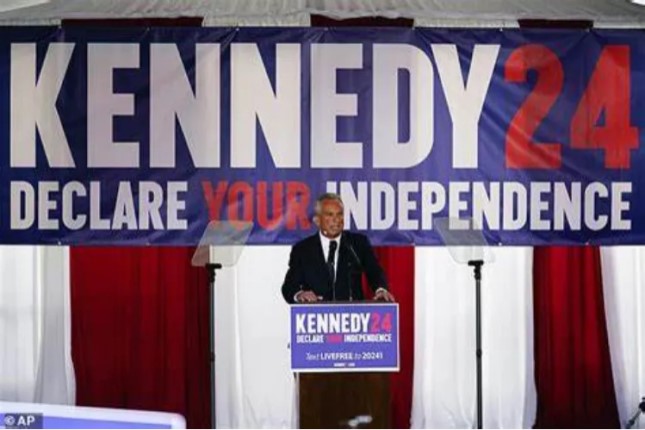
Bobby Kennedy announces his candidacy in the 2024 Presidential election as an independent.
The anti-war candidate, whose stance regarding peace and diplomacy was the telling difference between his Democratic and Republican competitors, had just defined himself as a pro-war leader.
I pointed this out in a response to Bobby’s post. “I like RFKJr,” I wrote. “I think he’s the best choice for POTUS. He’s positioned himself as the peace candidate. And this is the tweet I fear may have sunk his chances. Israel’s policies regarding Palestine are indefensible. Bobby should be promoting an equitable peace settlement. Not war.”
Bobby had one last chance to salvage his candidacy—his high-profile announcement on October 9.
He blew it.
Rabbi Rabbi Shmuley Boteach introduced Bobby by calling for a moment of silence for the Israeli victims. Then Bobby proceeded to say nothing—nothing—about the single most pressing issue of the day. This was his chance to weigh in on the side of peace, to promote the very peace and diplomacy message he articulated back in June.
He was silent, instead letting Rabbi Boteach speak on his behalf after the announcement.
And speak he did.
Dismissing criticism from Jewish groups that Bobby had not addressed the Hamas-Israeli conflict, Boteach said that his—Boteach’s—involvement in the October 9 event defined Kennedy’s stance toward Israel. “I think that was very brave of him and showed tremendous solidarity that he asked a rabbi who’s his close friend. You know, he moved away from the political figures who could have introduced him and endorsed him. The fact that I’m the one that introduced him, I think said it all.”
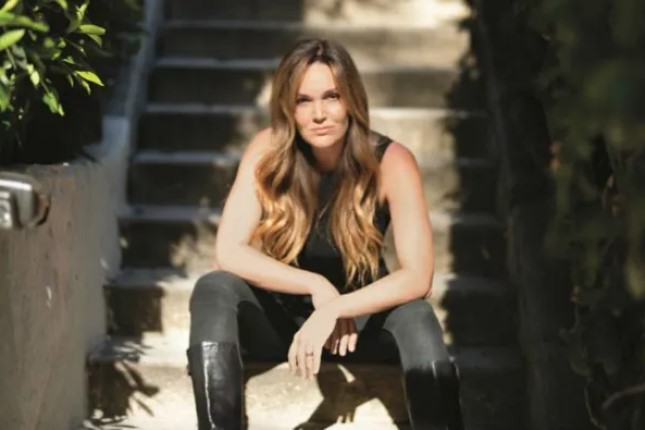
Former CIA officer-turned Kennedy campaign manager, Amarillys Fox Kennedy.
Five days later, on October 14, Bobby removed Dennis Kucinich as his campaign manager, replacing the veteran politician with a political neophyte—Amaryllis Fox Kennedy, Bobby’s daughter-in-law, and a former CIA clandestine officer.
I count Dennis as a friend. We’ve known each other for decades, ever since he invited me to testify in Congress about President George W. Bush’s flawed claims of Iraqi weapons of mass destruction. I supported Dennis in his own bid for the presidency, back in 2000, and have for the past several years had the honor of serving with him on a prestigious advisory board where we provide our opinions on matters pertaining to geopolitics. Dennis’ hand could be felt in Bobby’s powerful Peace and Diplomacy speech. Sadly, the same could not be said of Bobby’s stance on Israel—Dennis had spent his political life defending the rights of Palestinians in the face of Israeli oppression. While both Dennis and the Kennedy campaign have been silent as to the reasons behind the precipitous firing, smart money says that the Israeli issue played a major factor in the decision.
“Not a good look,” I posted on X. “At a time when America should be excited about Kennedy’s independent run, his indefensible support of Israel is sinking his campaign. He is not only failing to gain any traction, but also bleeding support from a critical base of potential supporters—those Americans who bought into his rhetoric of peace.”

The results of the Israeli bombing of Gaza, October 2023.
Bobby’s commitment to peace and diplomacy is what made him viable as a presidential candidate where his two likely opponents were on record supporting Israel without question.
Bobby could have followed in his uncle’s path, advocating that all Americans walk in the shoes of the Palestinian people to better understand their grievances and, in doing so, be better positioned to come up with a fair and equitable peace based on diplomacy, not war.
Bobby did not and has not. His appointment of Amaryllis Fox Kennedy bodes poorly for the future. I will continue to applaud Bobby for his stance on Russia and disarmament. But until he fundamentally changes course on Israel, I can’t in good faith claim to support his candidacy. If his name gets on the ballot, I may end up voting for him as the lesser evil, but that is not high praise.
America deserves better.
The world deserves better.
The people of Palestine deserve better.
Main photo: Bobby Kennedy delivers his Peace and Diplomacy speech in New Hampshire, June 21, 2023.
Source: Scott Ritter Extra.
